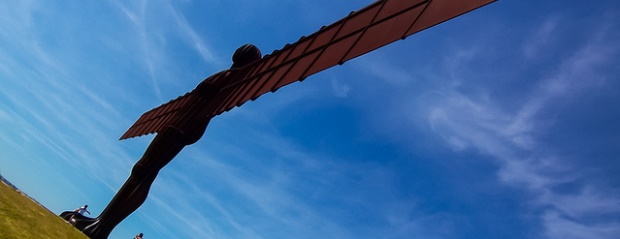‘Making, trading, and exporting’ is one of the mantras developed as part of the North East Independent Economic Review which launched this week, and of which I was a Panel Member. Chaired by Lord Adonis, the Review has helped to uncover the many lights hidden under some bushels. Of course, we have all recognised the challenges the region has faced in recovery from the end to its heavy industry as developing economies moved into these sectors. But as several said at the launch event, it is now possible to look forward to the future rather than mourn the past.
I participate in many economic reviews and have been engaged in regional economic policy for a decade (or two). What has been refreshing in the North East is the willingness to embrace opportunity and distinctiveness. Too often, I see ‘sector strategies’ which mean that everyone is chasing the same mobile investment in a zero sum game, and where the investment (if any) can disappear again as fast as it arrived.
And the region has some real distinction. It is the only part of the UK with a positive balance of trade in goods, for example. It has created a set of supply chain investments around the Nissan plant, where component suppliers have invested not only to supply the Sunderland plant, but also to export to elsewhere in Europe. And these are not the only success stories – there are high tech spin-offs from the universities, and specialist exporters in subsea marine, alternative energy, and biomedical areas.
Moreover, there is real engagement from these businesses into bottom-up organisations such as BioNow, which can support the development of new research and development initiatives to drive still further investment, innovation and new opportunities. This is not ‘we need help’ but ‘give us the freedom to get on’. And of course this is the attitude which built the North East’s economy in the first place.
So the outcome of the Economic Review has been to identify the ways in which that energy and optimism can be supported, harnessed and liberated. After all, investors, employers and the buyers and sellers of goods and services all exist within a context of rules, regulations and expectations of ‘how we do things round here’. The review has welcomed the willingness of seven Local Authorities in the region to come together to support the agenda around skills, transport, economic development and inward investment. The Combined Authority, together the Local Economic Partnership will set up North East International to support exporters and bring together efforts to attract Foreign Direct Investment. They will also work together on skills investment. This partnership working is a key way in which local and regional institutional capacity can be developed to give the region that base of activity which creates a positive feedback to optimism and ‘can do’.
That is turn will help create what I have called ‘stickiness’ – how new firms and investors are encouraged to stay, graduates to take local jobs, and entrepreneurs to develop. Stickiness is what has already been created around the Nissan plant, with the development of an effective supply chain. Innovation occurs in problem solving, and this is much more about supply-demand relationships than about peer-group ones, though the peer-group may create a solution. A healthy mix of collaboration and competition is what drives innovation which in turn drives productivity and growth. Getting the new off the ground may require some policy support – but we must be careful not to create a stifling bureaucracy. Small firms need to become bigger, but the starting point for this is just one more contract. Supporting the networks which make this possible is a key task and I look forward to helping make this possible over the months to come.
